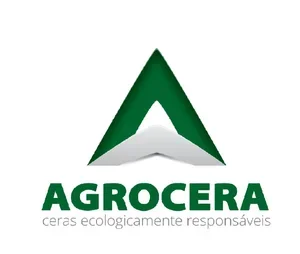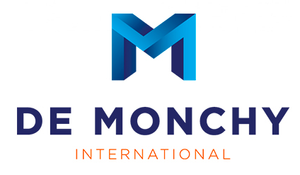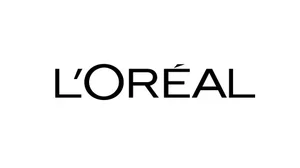Working group on Carnauba in Brazil
A message to all companies sourcing Carnauba wax:
Initiative for Responsible Carnauba (IRC)
The Initiative for Responsible Carnauba aims to improve social and biodiversity conditions in Carnauba wax sourcing areas through working directly with local suppliers. The initiative is working towards more responsible Carnauba wax production that respects human rights and biodiversity in the Carnauba wax producing areas, which are located in the unique Caatinga and Cerrado biomes in northeast Brazil. UEBT acts as the Secretariat of the IRC.
Environmental and social challenges are prevalent in Carnauba wax extraction areas in northeast Brazil, including poor working conditions, low pay and some incidences of child labour. There are also high rates of deforestation, degradation of local biodiversity, persistent drought, and rapid expansion of invasive species. These problems are often systemic, with a wide range of factors involved that contribute to the challenges.
Objectives
Launched in 2018, the Initiative for Responsible Carnauba (IRC) involves Brazilian and international actors in the Carnauba wax production industry, government and civil society institutions. These actors work together to support Brazilian wax processors in their commitment to improve the living and working conditions of workers and respect biodiversity in Carnauba extraction areas. The IRC reinforces existing efforts from the Brazilian Environmental and Labour ministries and other initiatives, such as a working group formed by inPACTO and the Sustainable Carnauba project, led by actors of the Brazilian Carnauba wax industry and the NGO Associação Caatinga. The initiative supports the efforts of the local companies by catalysing engagement among international buying companies of Carnauba wax.
Activities
The initiative has developed an action plan focusing on good harvesting practices, traceability and transparency of Carnauba wax origins, and shared learning and trainings. A manual and videos on good practices targeted at workers were produced with support of the IRC. Local wax processing companies are implementing Biodiversity Action Plans to promote the regeneration of the unique ecosystems in which they work. IRC members also work together to develop projects that will directly benefit the local communities.
A current project of UEBT and the IRC is the Carnauba Worker Rights and Safety project that is training workers in their human rights and repairing old and unsafe Carnauba processing (beating) machines to make them safer for workers and compliant with safety requirements. The project aims to reduce the risks of injuries of machine workers and tackle the lack of knowledge of machines owners and manufacturers on the legal safety requirements, while also raising awareness of workers on their rights.
In order to enter the IRC, the local wax processing have to sign the TAC, a voluntary legal instrument developed by the Brazilian government that ensures the provision of basic labour rights. As part of the initiative, IRC members are encouraged to implement field verifications of the harvesting conditions in the supply chains of the participating Carnauba wax suppliers. These are to be done based on international standards such as the UEBT standard, or other equivalent standards. Verification needs to cover human rights (including all International Labour Organisation (ILO) core conventions on minimum age for work, forced labour, etc.), adequate working conditions, as well as other principles such as biodiversity conservation and local economic development.
Join the IRC!
Carnauba wax suppliers from Brazil can step forward to participate in the IRC by becoming a UEBT member and submitting an improvement plan that shows they are making gradual and verifiable steps to meet the UEBT standard.
In light of the sector‘s challenges, it is necessary to bring together buyers and processors of Carnauba wax products. Buyers support improvements in the sector by committing to purchase wax from the wax processors that comply with IRC requirements, thereby encouraging the efforts of these local companies to sourcing with respect for people and biodiversity.
Another condition for buyers is to invest in a Human rights project in the Carnauba sector, as follows:
For final product manufacturers: a contribution of 30 000€ over a maximum of 5 years
For distributors: a contribution of 15 000€ over a maximum of 5 years
You can express your interest in becoming an IRC member by writing to us at irc@uebt.org
Current participants from industry and civil society in the Initiative for Responsible Carnauba are:
Partners:
UEBT also has a partnership with CONTAR (the National Confederation of Rural Salaried Workers) in Brazil, through UEBT’s role as the Secretariat of the IRC. The partnership, which also includes the IRC, aims to promote respect for human rights in the Carnauba sector through trainings of workers, communication campaigns, and progress towards just remuneration.
The IRC was originally founded by GIZ through the Project "Private Business Action for Biodiversity," commissioned by BMU and the International Climate Initiative, and in partnership with UEBT.
Current participants from industry and civil society in the Initiative for Responsible Carnauba are:
Resources:
Case study - Tackling environmental and social challenges through industry working groups
Biodiversity Action Plans for Carnauba
Socio-economic conditions and biodiversity status in Carnauba production areas
Reports of the in-person events of the Pro-Carnauba Dialogues
Results of the Carnauba Worker Rights and Safety project
.


























